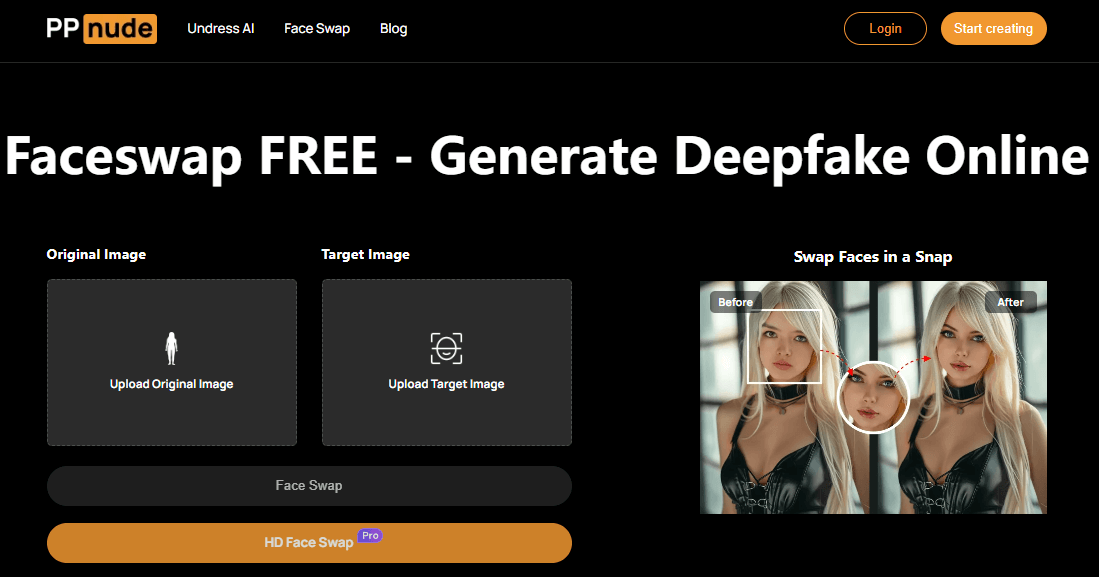
In an era where technology shapes our perceptions and experiences, the emergence of deepfake pornography has raised significant ethical and social concerns. The case of Livvy Dunne, a prominent figure in the gymnastics world and social media influencer, has brought this issue to the forefront. As deepfakes become increasingly sophisticated and accessible, the implications for individuals, especially public figures like Dunne, are profound and alarming.
The phenomenon of deepfake technology, which utilizes artificial intelligence to create convincing yet fabricated videos, has sparked debates surrounding consent, privacy, and the potential for harm. Livvy Dunne's name has unfortunately been linked to this disturbing trend, leading to discussions about the responsibility of content creators and the impact on those targeted.
As we delve deeper into the topic of Livvy Dunne deepfake porn, it is crucial to understand the broader context surrounding deepfakes and their implications on society. This article will explore Dunne's biography, the rise of deepfake technology, the personal impact on Dunne, and the ongoing discussions about consent and morality in the digital age.
Who is Livvy Dunne? A Brief Biography
Livvy Dunne is an American gymnast, social media personality, and influencer known for her impressive athletic achievements and engaging online presence. Born on October 1, 2002, in Hillsdale, New Jersey, Dunne gained recognition as a talented gymnast at a young age. She has competed at various levels, including the NCAA, and has garnered a substantial following on platforms like TikTok and Instagram.
| Personal Details | Bio Data |
|---|---|
| Name | Livvy Dunne |
| Date of Birth | October 1, 2002 |
| Hometown | Hillsdale, New Jersey |
| Profession | Gymnast, Social Media Influencer |
| Social Media Following | Over 10 million (combined across platforms) |
What is Deepfake Technology?
Deepfake technology refers to the use of artificial intelligence to create realistic-looking fake videos or audio recordings. By analyzing existing footage and images, deepfake algorithms can manipulate content to make it appear as though someone is saying or doing something they never actually did. This technology has various applications, from entertainment to education, but it also poses significant risks, particularly when used for malicious purposes.
How has Livvy Dunne been affected by Deepfake Pornography?
The emergence of deepfake pornography featuring Livvy Dunne has raised serious concerns about her privacy and the potential damage to her reputation. Such videos can spread rapidly across the internet, often without the victim's consent or knowledge. For Dunne, a young woman in the public eye, this situation not only invades her personal life but also impacts her career and mental well-being.
What are the Legal Implications of Deepfake Porn?
As deepfake technology continues to evolve, legal systems worldwide are struggling to keep pace. The creation and distribution of deepfake pornography often fall into a gray area of the law, raising questions about consent, copyright, and defamation. In many jurisdictions, victims like Livvy Dunne may find it challenging to seek justice against those who create or share such content. This situation highlights the urgent need for legislation addressing the unique challenges posed by deepfakes.
What Can Be Done to Protect Individuals from Deepfake Abuse?
Addressing the issue of deepfake abuse requires a multifaceted approach involving technology, education, and legal reform. Here are some steps that can be taken:
- Implementing stricter laws against the creation and distribution of non-consensual deepfake pornography.
- Raising public awareness about the dangers of deepfakes and promoting digital literacy.
- Encouraging platforms to develop advanced detection tools to identify and remove deepfake content.
- Fostering open conversations about consent and privacy in the digital age.
What Role Do Social Media Platforms Play in Deepfake Content?
Social media platforms are often the primary channels through which deepfake content spreads. While many platforms have implemented policies to address misinformation and harmful content, the rapid pace of technology can outstrip their ability to respond effectively. Platforms need to take proactive measures to monitor and manage deepfake content, ensuring that victims like Livvy Dunne are protected from harassment and exploitation.
What Can We Learn from the Livvy Dunne Deepfake Porn Controversy?
The situation involving Livvy Dunne serves as a cautionary tale about the implications of deepfake technology. It underscores the importance of consent and the potential for technology to be misused in harmful ways. As we navigate this complex landscape, it is crucial to advocate for the rights of individuals and work towards a safer digital environment.
In conclusion, the emergence of Livvy Dunne deepfake porn highlights the urgent need for awareness, legal reform, and technological advancements to combat the misuse of deepfake technology. As society continues to grapple with these challenges, it is essential to prioritize the well-being and rights of individuals, ensuring that technology serves as a tool for empowerment rather than exploitation.
ncG1vNJzZmivp6x7p7XGoaugqpGlva2x05qnZ5ufony0u86haWikmavDunnDrqWnnV2Zsqa8xZqinmWgpL%2BvesetpKU%3D